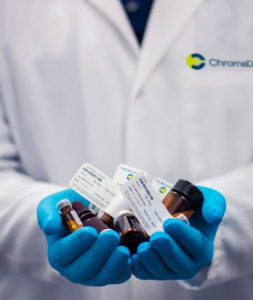3 FAQs About Defective Pharmaceutical Drug Lawsuits

It’s reasonable to assume that FDA-regulated drugs are safe when used as directed. Unfortunately, even if a drug manufacturer meticulously tests its product, consumers may still suffer unexpected side effects.
The U.S. Food & Drug Administration can request that a pharmaceutical company recall defective dugs, but these recalls often come too late for many patients. If you experienced complications after taking a medication as instructed, you may be able to recover compensation for medical bills and other damages by filing a product liability claim.
Read on to learn the answers to some frequently asked questions about these cases:
1. How Can I Prove the Drug Caused My Injury or Illness?
To prevail in a defective drug case, it must be shown that the drug in question did in fact have some sort of defect. You must also prove how the defect was the actual or proximate cause of any complications you experienced.
Evidence that may contribute to your case includes:
- The original prescription;
- Your medical records;
- The actual defective medication;
- Statements from medical experts;
- The instructions or manual that accompanies the medication;
- Data about other patients who suffered the same complications; and
- Any official statements from the manufacturer or FDA regarding recalls.
Unlike most personal injury claims, strict liability often applies to defective product cases. That means you don’t have to prove fault in order to impose liability.
2. What Damages Can Be Included in the Settlement Calculations?
In Florida, personal injury claimants have the right to seek compensation for both the economic and non-economic damages. Such damages might include:
- Lost wages;
- Loss of future earning capacity;
- Medical expenses;
- Home care;
- Child care;
- Domestic help;
- Emotional distress;
- Loss of enjoyment in life; and
- Pain and suffering.
Depending on the nature of the injury or illness, the spouse of the patient may be entitled to loss of consortium damages. This encompasses the loss of affection, assistance, comfort, companionship, fellowship, and society.
3. How Much Time Do I Have to File a Product Liability Lawsuit?
In the state of Florida, the typical statute of limitations for personal injury lawsuits is four years. When a defective drug causes fatal complications, the deceased’s surviving family has two years from the date of death to file suit.
If you want to sue a government entity, you must submit written notice, allow for a 180-day investigation period, and then proceed to trial within three years (or two years if the case involves wrongful death); however, it’s important to note that you typically can’t sue the FDA for approving a defective drug.
Call 772-266-5555 to Discuss Your Case with a Florida Product Liability Attorney
If you want to file a product liability claim after suffering an injury or illness due to a defective drug, contact Weston & Pape. Our team will prepare your case for trial even if a settlement is the expected outcome to ensure we’re in the strongest possible position when settlement negotiations begin. Call 772-266-5555 or fill out our Contact Form to schedule a free consultation with a product liability lawyer in Florida.

 Call Us Today
- It's Free
Call Us Today
- It's Free